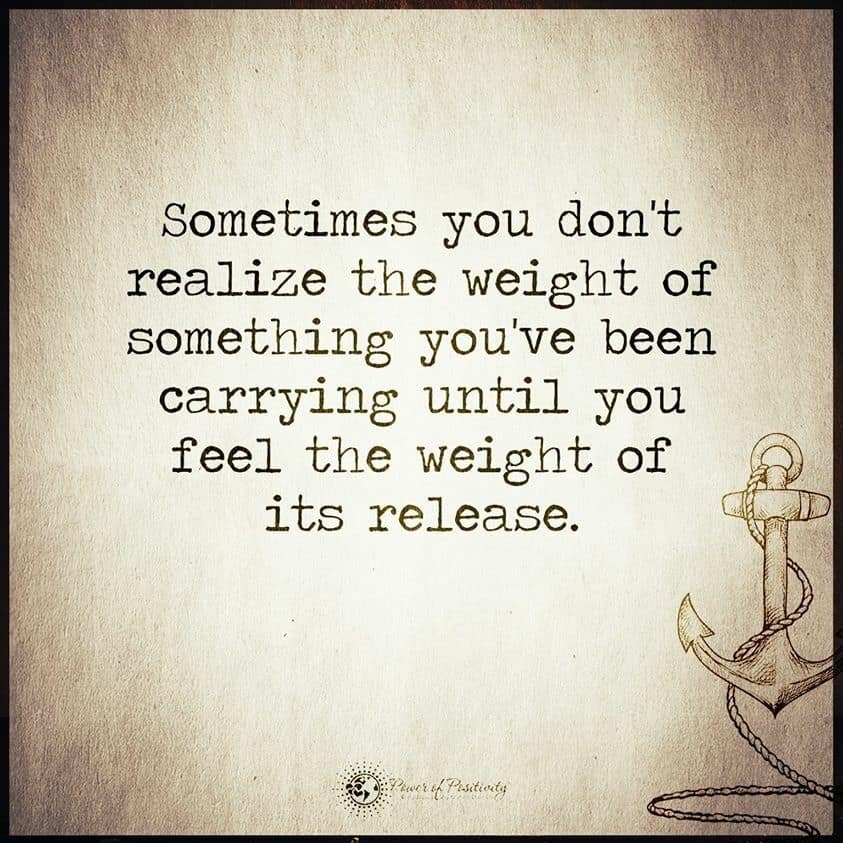Stress. Today, everyone is experiencing stressful feelings that stem from the pressures of everyday American life. Stress affects people differently, but there are common stress symptoms that everyone experiences. There are also stress symptoms that nobody ever talks about. Here is a list of 10 surprising stress symptoms you may not be familiar with.
1 – Chronic fatigue
Feeling like you want to sleep all the time could be a sign you’re experiencing stress. Daily life stress is common for everyone, but stress that causes chronic fatigue is different. This type of stress causes emotional fatigue that doesn’t let up. It can make you always feel sleepy and tired because the chronic stress wears you down. It never lets up. Chronic fatigue stress may be caused by a variety of situations or jobs such as
- Any intense job like police officers, nurses, teachers or doctors
- Having small children
- Financial problems
- Being a caregiver of a family member
- Divorce
- Being without a home
- Death in family
- Chronic illness
- Pandemic
Talk to your physician about your feelings of fatigue and the stress you’re experiencing. They may be able to offer you some helpful tips to overcome your anxiety. Here are some actionable suggestions that may help you reduce your stress.
Ways to cope with chronic fatigue
Now you’ve identified your trigger. So what is next? Here are some self-care tips to battle chronic fatigue
Exercise
Engaging in high-intensity exercises causes the release of chemicals in your brain called endorphins, which impact your mood and make you feel happier. Plus, a workout tires your muscles making you feel more relaxed. Exercise also boosts your physical strength and helps you release pent up tension. Here are some exercises to help relieve your stress
- High-intensity activities like jumping rope, running, aerobics class
- Yoga-Yoga helps you stretch and relax.
- Pilates- Pilates builds up your muscles and tones your body.
- Kickboxing-This sport relieves tension with the punching, kicking, and boxing techniques.
- Martial arts-Great way to release to build strength and release your tension.
- Biking-Getting outside is therapeutic. Exercising outside helps your mind and body relax and get stronger.
Eat well
Eat a diet high in stress vitamins such as fatty fish with Omega 3s for good brain health. Vitamin D foods, yogurt, and cheese help you feel calmer, and citrus foods boost your immune system to fight off sickness. Choose whole grains like oatmeal and quinoa for extra B vitamins as well as fresh vegetables and fruits.
Take a break
If you are waiting for that “ideal time” to get away, you can stop waiting. There is never going to be a good time. Caregivers, parents, or medical people are busy 24/7 caring for others’ needs. Taking a break from your responsibilities doesn’t mean you’re neglecting your duties. It means you’re human and need to rest. Taking breaks will give your body and mind a chance to relax and be refreshed. You’ll do a better job when you take breaks because you’ll have a calm mind which will help you do a better job.
2 – Feeling overly emotional
Stress can kick up your emotions, so you feel overwhelmed. Feelings like fear, anger, or frustration may keep you on edge. You may feel tightness in your chest cavity or have racing thoughts. Perhaps you feel like your world is caving in on you. Or may even feel incapable of dealing with anything or anyone such as work, kids, or your spouse because of your intense emotional stress.
Here are three different types of stress:
Regular stress
This stress can be due to work, family, or school. This stress isn’t overwhelming, and you get breaks from it during your day.
Sudden stress
Sudden stress comes from illness, losing a job, or a divorce. This is higher stress but usually lessens over time.
Traumatic stress
This is stress you experience from a big accident, an assault, a natural disaster like a hurricane or tornado. You may feel overly emotional and unable to cope.
If you are experiencing extreme emotional stress, get help right away. Talk to your family’s doctor or a counselor to get professional help. A counselor can help you cope with your stressful situation. Don’t try to do it by yourself.
3 – Hair loss
Studies show that constant extreme stress may cause hair loss. Some diseases cause hair loss, but if your doctor has tested you for these diseases and there’s no conclusive evidence, there’s anything wrong, then stress is likely the cause. When your pressure goes away, your hair will probably grow back.
4 – Graying quickly
Old wives tales tell tales about people turning gray overnight, but this can’t happen. But chronic stress can cause you to go gray over time. You may see this happen to those elected officials go into the office with dark hair, and after four years, they leave the position with prematurely gray hair. Your nervous system is responsible for the well known “fight or flight” responses that affect your pigment, which gives hair its color variation. Stress hormones cause the pigment cells to stop producing, so there’s no new pigment being made, which means no hair color.
5 – Grind your teeth in your sleep
Grinding your teeth is a sign of underlying stress. You may get face pain or pain in your jaw from it. If you are not unsure if you grind your teeth, here are some symptoms you may be experiencing.
- Jaw pain
- Earache
- Insomnia
- Worn-down teeth
- Broken teeth
- Gum recession
If you have these symptoms or signs, speak to your dentist. They can create a mouth guard to prevent teeth grinding. Find ways to relieve your daily stress with yoga, exercise, or even long walks outside.
6 – Get sick easily
Stress can lower your immune system, so you get sick all the time. If you’re always fighting a cold or catch every virus that shows up in your office or school, there’s a good chance your immune system is suppressed. If you’re stressed, your body goes on alert, trying to fight off the threat. This causes your body by lowering your white blood cells and raises your cortisol levels so your body can’t fight off sickness.
7 – Skin eruptions
Breakouts on your face can be a sign of stress. Your gut is affected by stress. It can cause your digestive system not to work correctly, causing you to feel sluggish. When your stomach isn’t functioning right, bacteria and toxins build up in your body, causing skin problems like eczema or psoriasis.
8 – Can’t focus on tasks
Being overly stressed interrupts your ability to focus on your tasks. Your mind wanders. You think about the things you’re feeling stressed about. You may try to get back on the job only to lose track of where you were again and again. If you’re experiencing a lack of focus due to stress, try these ways to get back on track.
- Listen to music-Calming music can help you calm and stay on task. Choose tunes without lyrics, so you don’t get distracted by the words of the song.
- Write down your stress-Dumping your thoughts on paper often releases your stress so you can focus on the things you need to.
- Get up and move-Take a walk, dance, or do some exercises to reduce your tension.
- Call someone in need-Give someone who’s having a hard time a call. Sometimes focusing on someone else can help you keep the focus off your problems.
9 – Stomach problems
Diarrhea, stomach ache, and a lack of appetite can be symptoms of stress. Your gut may churn, making extra acid and causing stomach pain. This is sometimes called the brain -to-gut connection where your brain sends signals to your gut, acting like your gut’s nervous system. This imbalance may cause long term stomach issues like Irritable bowel syndrome (IBS), causing constipation and diarrhea. Stress symptoms in your gut may also include
- Nausea
- Hungry all the time
- Constipation
- Ulcers
- IBS
- Indigestion
10 – Ringing in your ears
Tinnitus or ringing in your ears is sometimes a sign of stress. Constant buzzing, chirping, or ringing sounds may occur if you’re under extreme stress. It may be in both or one of your ears. Your brain is reacting to stress by sending a signal that there’s a noise when there really isn’t one. This can be due to extreme fear or anger. See your doctor right away if you’re experiencing tinnitus. This condition could be short term, but it’s crucial for your doctor to diagnose the problem quickly to prevent further damage.
Final Thoughts on Identifying Those Unusual Stress Symptoms
Stress has a variety of names. No matter what you call it, it can wreak havoc on your body and mind. Here are some synonyms for the stress you may use when describing it.
- Anxiety
- Worry
- Nervousness
- Weight
- Burdened down
- Overwhelmed
- Tension
- Pressure
- Strain
Today, stress is a common problem due to the widespread uncertainty in the world. You may be aware that you’re fighting stress and have some of its typical side effects. But because there are many stress symptoms that nobody ever talks about, you may not realize the negative impact that stress is taking on your body. If you’re under chronic stress, be sure to speak to your doctor or a counselor. They can aid you in finding relief from your stress. Take good care of yourself with exercise, healthy eating, and taking regular breaks. These simple things can help you have a calm mind, even amid your stressful days.
















 Community
Community

